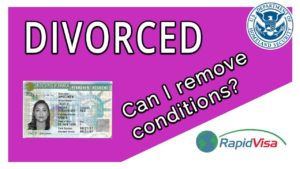How to prepare for a successful green card interview
What is the marriage green card interview?
The final step in the marriage green card process is the interview. The interviewing officer’s primary goal is to assess the authenticity of the marriage. Questions can focus on the history of the couple’s relationship, their daily activities as a wife and husband, and their future plans as a couple. If the interviewing officer is sufficiently convinced that the marriage is not fraudulent, they will approve the spouse for a green card.
Overview
The interview is the last big step in the marriage green card application process, and it can be the most intimidating and stressful element. You can reduce this stress by knowing what to expect and assembling an organized file to bring to the interview.
Green card interviews within the United States are handled by U.S. Citizenship and Immigration Services (USCIS), while green card interviews abroad are handled by the U.S. State Department.
For Spouses living together in the United States
Once USCIS has finished reviewing all of your green card application materials, your file is transferred to the local USCIS field office closest to where the two of you live. The local office will then issue an appointment notice informing you that you must both attend an interview at a certain time, date, and location.
For Spouses Living Abroad
Once the State Department's National Visa Center (NVC) has finished reviewing all of your green card application materials, your file is transferred to the U.S. consulate that processes green card applications in the foreign spouse’s home country. The consulate will then issue an appointment notice informing the foreign spouse that they alone must attend an interview at a certain time, date, and location. The sponsoring spouse does not attend this interview.
Getting Ready
The following actions can help you prepare for a smoother green card interview:
- Refresh your memories: Sit down together (or schedule an extended phone conversation) during the week before your interview and go over the key dates and events in the history of your relationship.
- Collect your prior documents: Prepare the original documents of all the copies you submitted to the government in your green card application package (including passports, birth certificates, marriage certificate, court records, and prior divorce documents, plus photos and other evidence of the authenticity of your marriage).
- Prepare new documents: Prepare copies of more documents that help prove the authenticity of your marriage—examples include recent photos together, birth certificates of any children born to the two of you, joint income tax returns, recent joint bank account statements, joint property documents, and joint insurance documents. If you're living in different countries, consider including copies of travel itineraries for vacations you took together (especially to the foreign spouse’s home country) and copies of phone records showing you talk on the phone regularly. Here are more ideas on documents you can use to prove that your marriage is authentic.
- Get organized: Organize all of your documents in a folder, and place any photos in a chronological album.
At the Interview
The Interviewing Officer
The interview will be conducted by a USCIS officer (in the United States) or a consular officer (abroad) who is specifically trained for such marriage-based green card interviews. The interviewing officer’s primary goal is to assess the authenticity of the marriage.
The interviewing officer is also looking to assess whether the foreign spouse qualifies for a green card. The officer will address details surrounding the spouse’s entry to the United States, any arrests, and previous immigration history. This includes previous statements made at embassies and consulates, and to customs and immigration officers at the airport.
the Interview questions
At the interview, questions will typically focus on the history of your relationship, your day-to-day activities as a married couple, and your future plans together. The interview is also an opportunity for you to present extra evidence to prove the authenticity of your marriage.
Check out this list of common interview questions, which can get very personal. It’s important to answer the interviewing officer’s questions honestly, directly, and succinctly.
Often couples feel pressured to have an answer to every question. It’s better to say “I don’t know” or “I don’t remember” than trying to make something up to answer a question.
interviewing separately
It is common for a couple in the United States to be interviewed together by the same USCIS officer. Sometimes, however, couples will arrive at a USCIS interview expecting to be interviewed together, but find that they will be interviewed separately—either by two different officers, or by the same officer but one at a time.
This type of interview is referred to as a “Stokes” interview. (In case you’re curious, the name comes from a court case, Stokes vs. INS, that established important rights for the couple being interviewed.) Often officers from USCIS’ Fraud Detection and National Security unit (FDNS) will conduct these interviews. Each spouse is interviewed separately and their answers are then compared for inconsistencies. A couple that has already been interviewed once could also be called in a second time for a Stokes interview.
In general, there are at least three reasons that a couple would get the extra scrutiny of a Stokes interview:
- USCIS has identified general “red flags” that suggest the possibility of a fraudulent marriage (for example: a large age gap between the spouses, a very short marriage, very different cultural backgrounds, or different addresses showing up for the spouses online).
- USCIS has uncovered potentially adverse evidence about the marriage based on an FDNS investigation.
- During the course of a regular interview, the USCIS officer can choose to switch to a Stokes interview format if new information has come up that they want to explore more.
What Happens Next?
There are typically five possible outcomes to a green card interview:
- Approval: The officer will inform you in person that they are going to approve your case.
- Request for evidence (RFE): The officer will issue an RFE for more information. Most commonly, the RFE will ask for extra documentary proof that your relationship is authentic, such as additional utility bills, bank statements, or statements from friends and family regarding the relationship. In the unlikely event you get an RFE, RapidVisa can help you respond to the government for an additional $300.
- Additional review: The officer will state that your case needs additional review, and that you must wait for either a final decision or additional next steps to arrive in the mail.
- Second interview: The officer will invite you for a second interview to further discuss certain areas of your relationship or background. You will receive another interview notice from USCIS or your consulate in the mail.
- Denial: If clear ineligibility is established at the interview, the officer can deny a case on the spot. Some factors that may negatively affect the green card applicant's eligibility include insufficient documents, issues uncovered in the background check, or immigration history issues. More often than not, however, the officer will give you an opportunity to clear up such issues before reaching a final decision.

